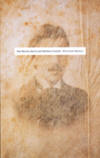Work from Memory
I’ve never read the work of Marcel Proust. Although I’ve always understood Proust to be an author everybody should read, I simply haven’t gotten around to doing so myself. This gap in my reading is admittedly a mild embarrassment, especially as I often find myself the antagonistic provocateur busily berating friends and associates over authors and key texts which they absolutely must read. Much more generous than I, Dan Beachy-Quick’s and Matthew Goulish’s Work from Memory doesn’t berate the reader for any lack of familiarity with its source text. Even without firsthand awareness of Proust’s work, there’s plenty to chew on here concerning reading, memory, ideas of “the book,” and how conscious or not we as readers remain in relation to ongoing and past experience. My understanding is that Proust sought to set down in writing the details of everyday life in as exact, excruciating detail as possible—not the bustling activities with which our lives are ever busily preoccupied, but rather the minutiae of time’s passing, or as Goulish phrases it, “the book project of a life.” Or as Beachy-Quick describes Proust’s protagonist: “The writer dreams of the book as a life.” Work from Memory turns round and round these themes.
I’ve never read the work of Marcel Proust. Although I’ve always understood Proust to be an author everybody should read, I simply haven’t gotten around to doing so myself. This gap in my reading is admittedly a mild embarrassment, especially as I often find myself the antagonistic provocateur busily berating friends and associates over authors and key texts which they absolutely must read. Much more generous than I, Dan Beachy-Quick’s and Matthew Goulish’s Work from Memory doesn’t berate the reader for any lack of familiarity with its source text. Even without firsthand awareness of Proust’s work, there’s plenty to chew on here concerning reading, memory, ideas of “the book,” and how conscious or not we as readers remain in relation to ongoing and past experience. My understanding is that Proust sought to set down in writing the details of everyday life in as exact, excruciating detail as possible—not the bustling activities with which our lives are ever busily preoccupied, but rather the minutiae of time’s passing, or as Goulish phrases it, “the book project of a life.” Or as Beachy-Quick describes Proust’s protagonist: “The writer dreams of the book as a life.” Work from Memory turns round and round these themes.
Formalistically speaking, this is a pretty quirky, interestingly odd collaboration. Goulish’s prose and Beachy-Quick’s poetry never line up in any linear conversation with one another, yet clear echoes between the texts remain. Each is in pursuit of deep reflections upon their own perceptions as readers of Proust. Beachy-Quick’s poetry evokes an abstracted moodiness—“Who was his thought before his mind could think it / Little beating mind a pulse sounds like a footprint”—which Goulish’s prose mirrors at some points: “The life and the writing blaze the trail through the aporia, the roadless nocturnal countryside. They navigate the immensity of the labor by landmarks new and old at once, by virtue of similarity.” At other times, Goulish tends more toward an exacting account and commentary of information relevant to the focused inquiry at hand: “A brain, constituted of independent parts, synchronizes without an independent authority. We may liken the mysterious effect to an orchestra playing without a conductor.” In general, this book reads more like various sets of polished notebook jottings traded back and forth, rather than as a finished work.
There is, however, much merit to the project. Beachy-Quick’s opening line, “a life describes a book describes a life,” declares how much this is a book about “the book” itself. The remembered act of writing merges with the remembered act of reading, combining to form the innocuous target both authors direct their writing toward. Early on, Goulish announces that “books bookend the project of the book.” Work from Memory has no ending and no beginning. This is an endless reverie often found dwelling upon Proust but also frequently touching upon other texts and areas of interest ranging from the scientific to the philosophical and back to the literary as well as the musical. A book which in itself pays tribute to the act of reading, urging its audience to consider their own stories of interaction with texts. The haunting edges of desire, design, and memory possess an inescapable, fascinating allure: exploration of where identifications between author and reader blur.





